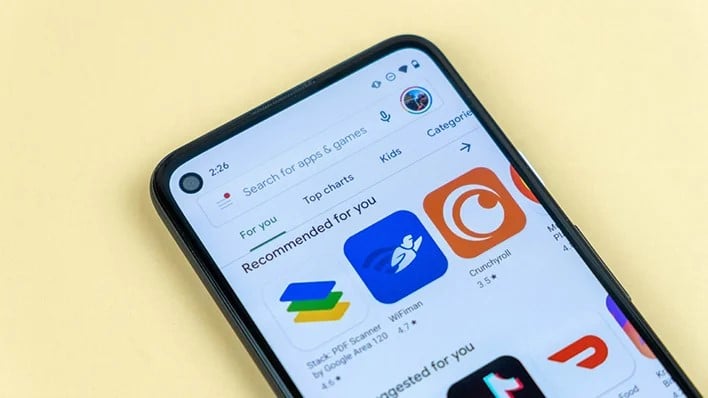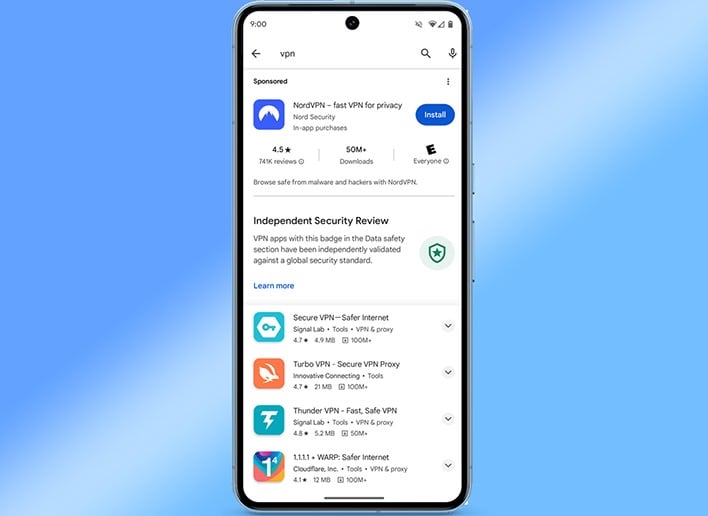Google Blocked Over 2.28M Risky Android Apps In 2023 Play Store Cleanup

According to Google, it has used numerous techniques to make the Play Store safer over the past year, including limiting access to abandoned apps, scrubbing malware, highlighting safe apps, and blocking bad developers. All of Google's actions fall under the SAFE policy:
- (S)afeguard our Users. Help them discover quality apps that they can trust.
- (A)dvocate for Developer Protection. Build platform safeguards to enable developers to focus on growth.
- (F)oster Responsible Innovation. Thoughtfully unlock value for all without compromising on user safety.
- (E)volve Platform Defenses. Stay ahead of emerging threats by evolving our policies, tools and technology.

Recent changes to permissions are being enforced widely, too. Google says about 200,000 apps were rejected or updated and resubmitted to ensure they make proper use of sensitive permissions like location and SMS read/write. Google also revealed it has blocked more than 1.5 million apps from appearing on the latest Android phones because they target old system APIs, making them less secure. Not that long ago, pruning that many apps would have been unthinkable, but Android and iOS have stopped competing on who has the most apps—they both have more than enough.
Android doesn't rely entirely on apps in the Play Store, but even apps sideloaded from other sources benefit from Google's more strenuous security practices. Play Protect's real-time code scanning identified more than 5 million malicious sideloaded apps in 2023. The company claims these efforts to keep Android devices secure will continue into 2024 and beyond, and that includes filing RICO lawsuits against the most egregious scammers that target Google Play. It filed one such lawsuit earlier this month.

